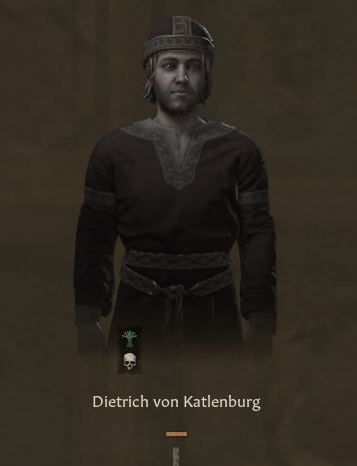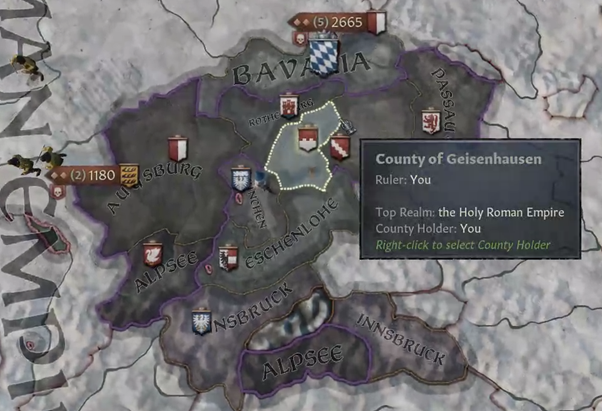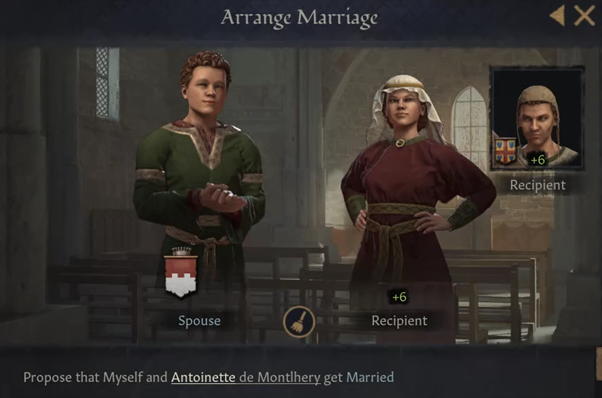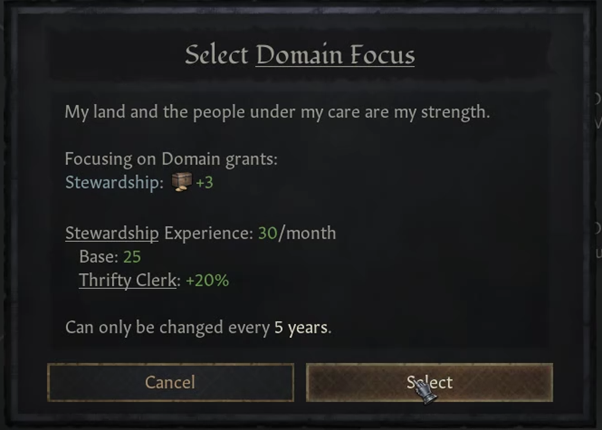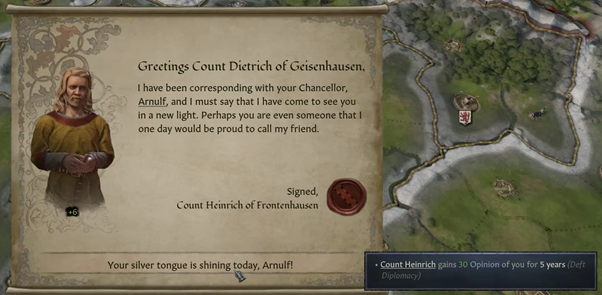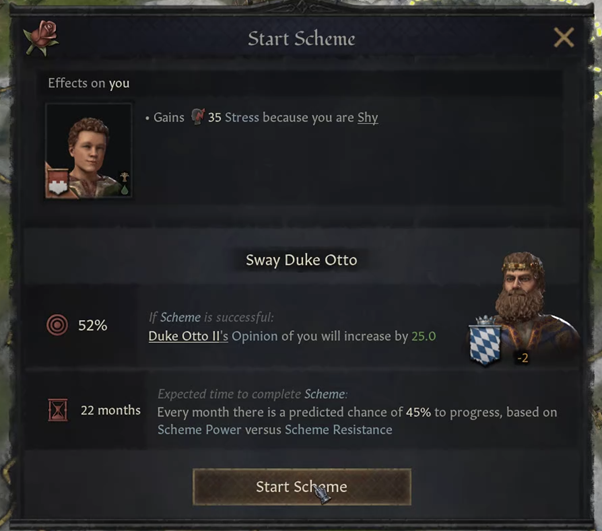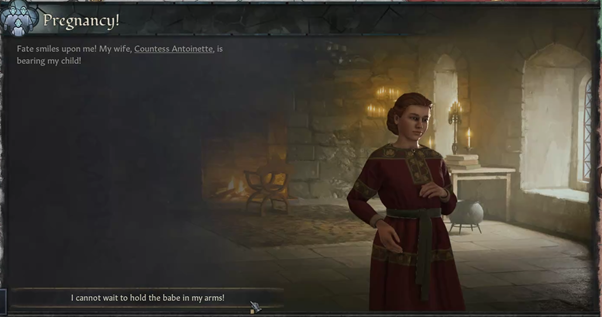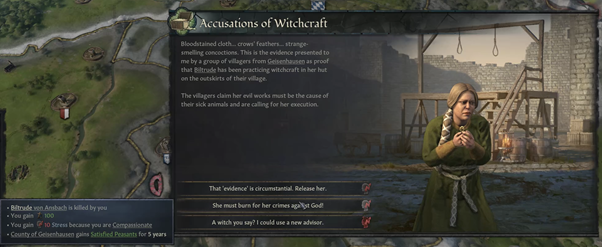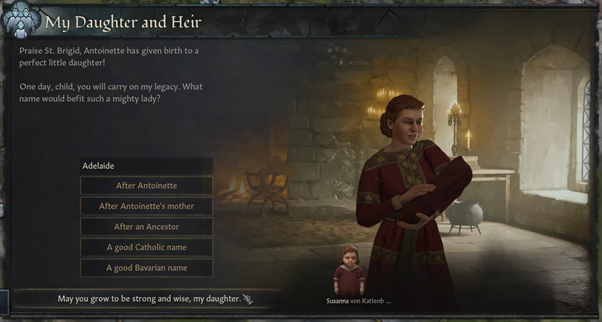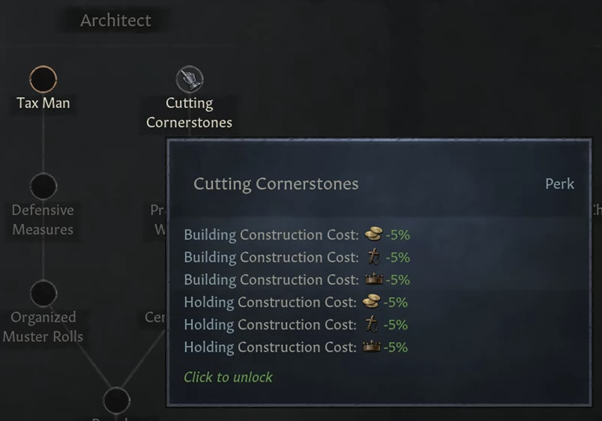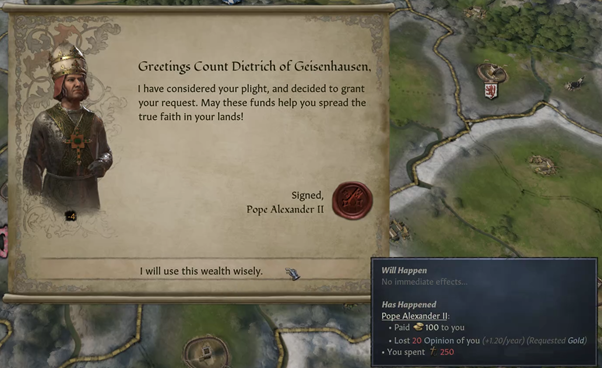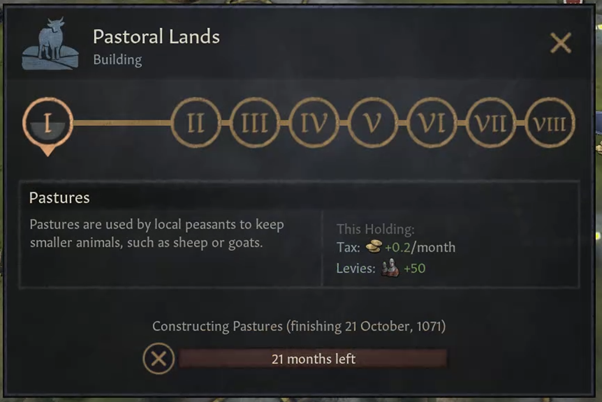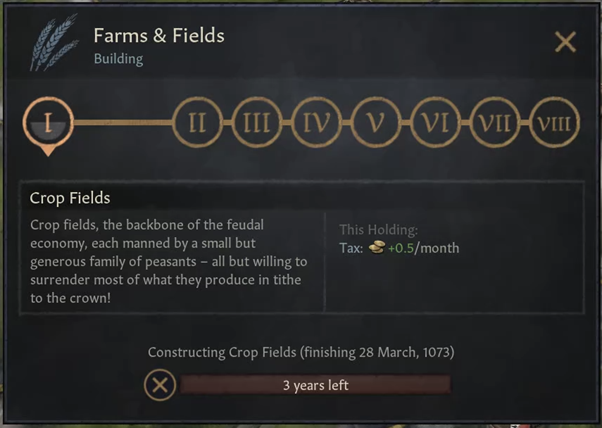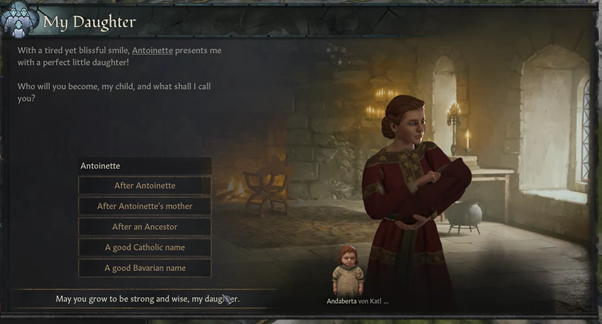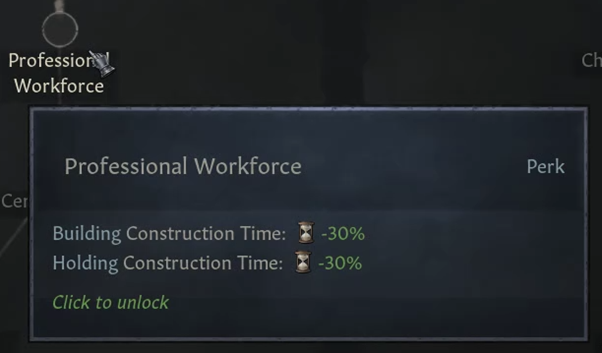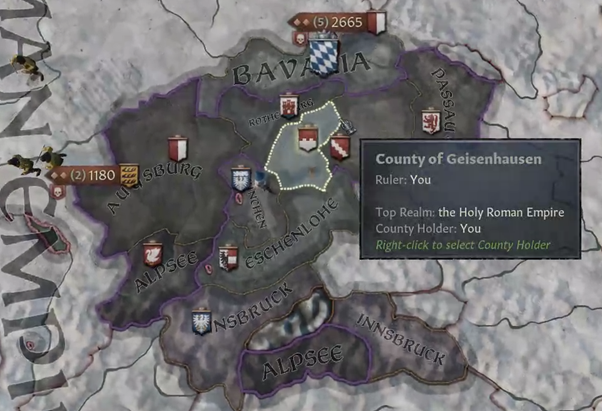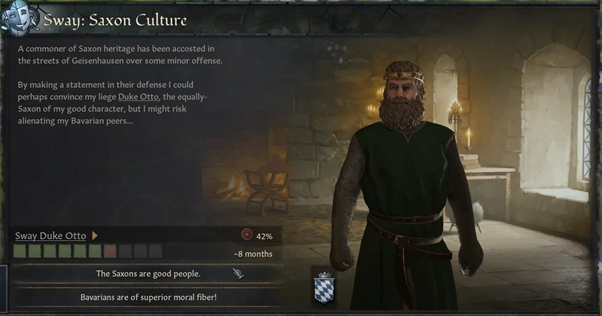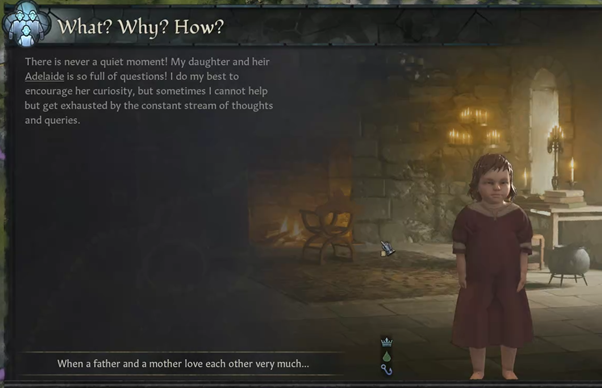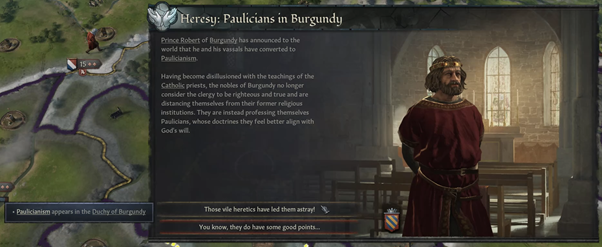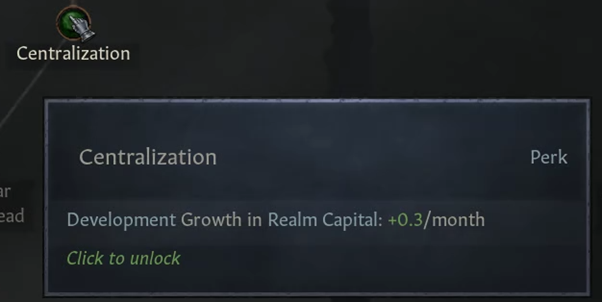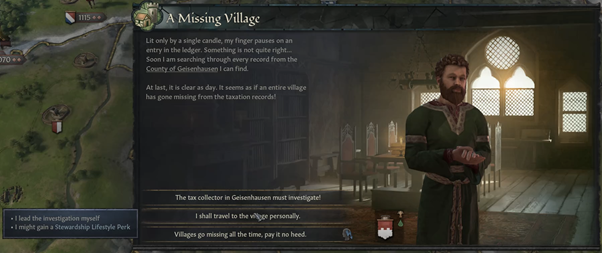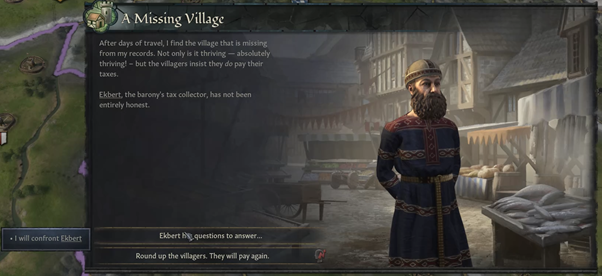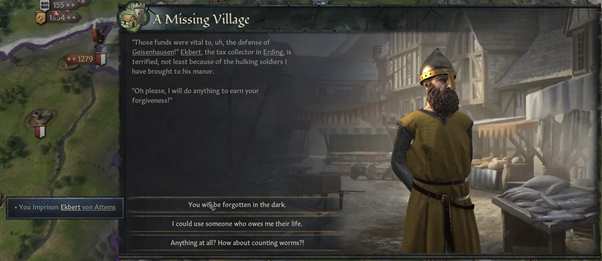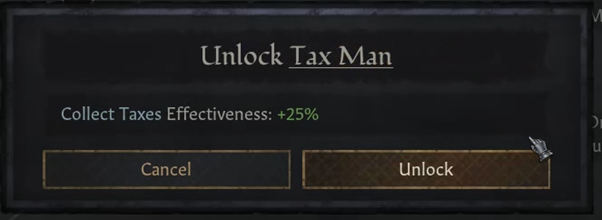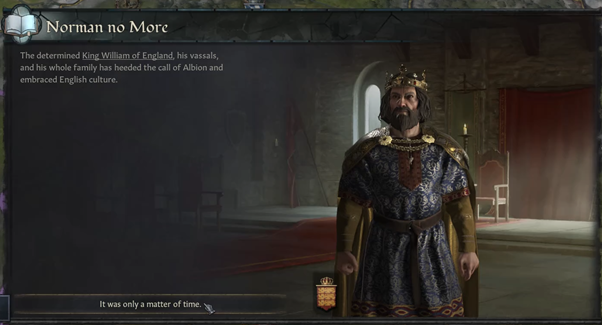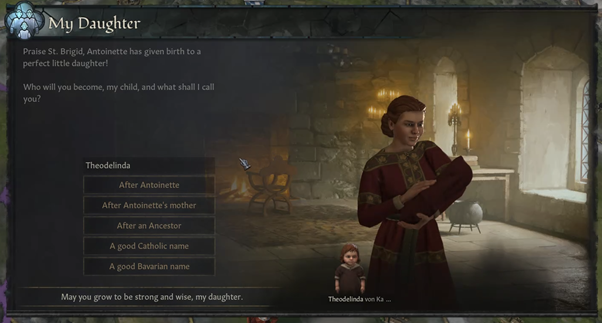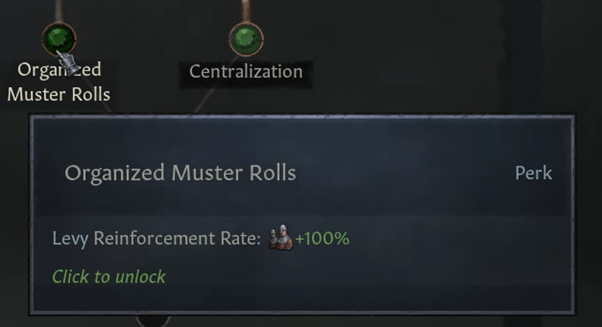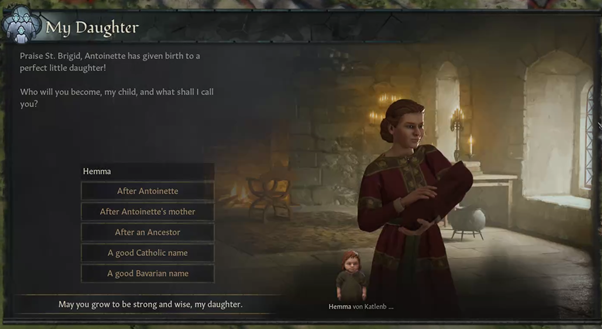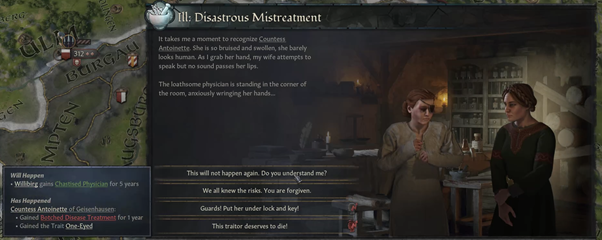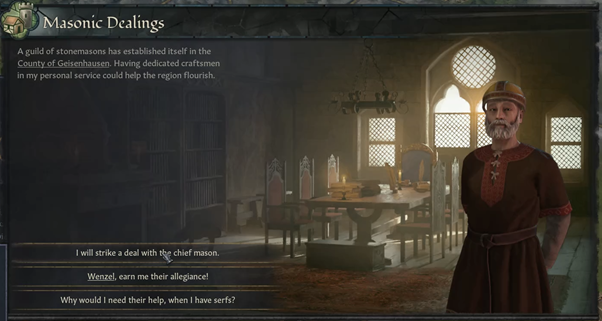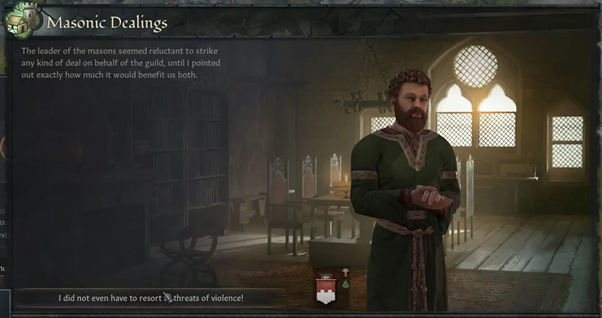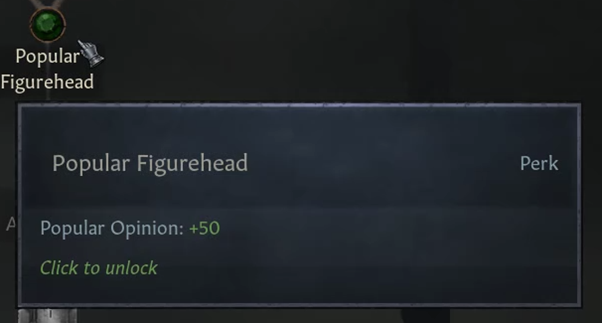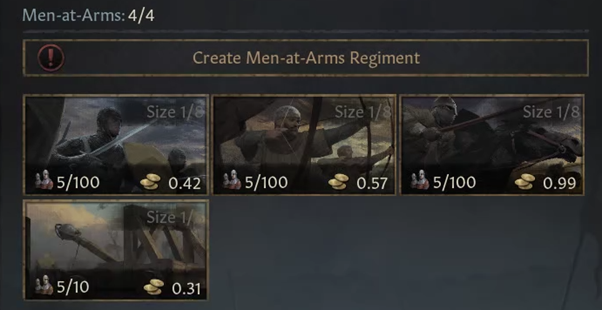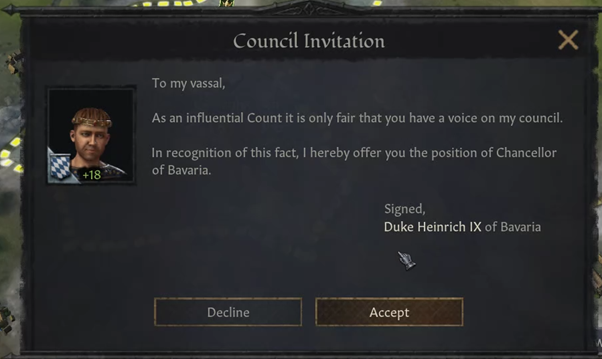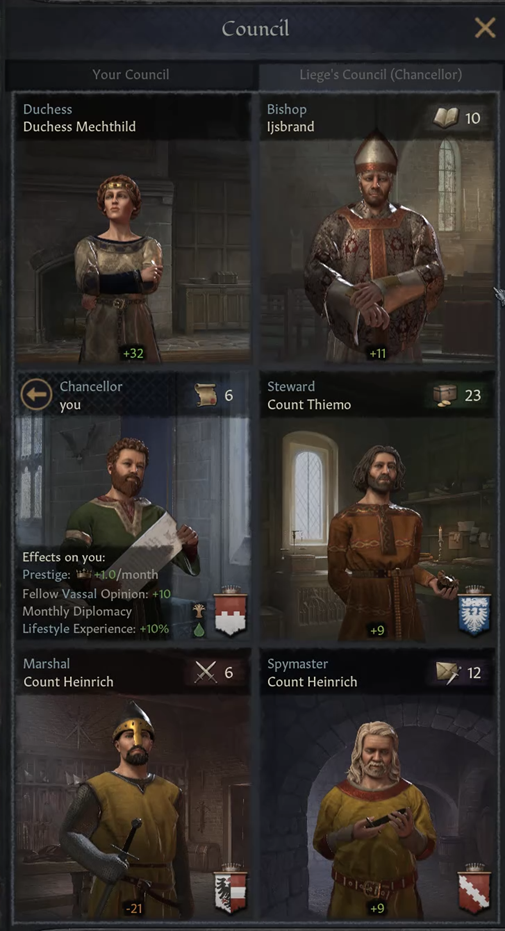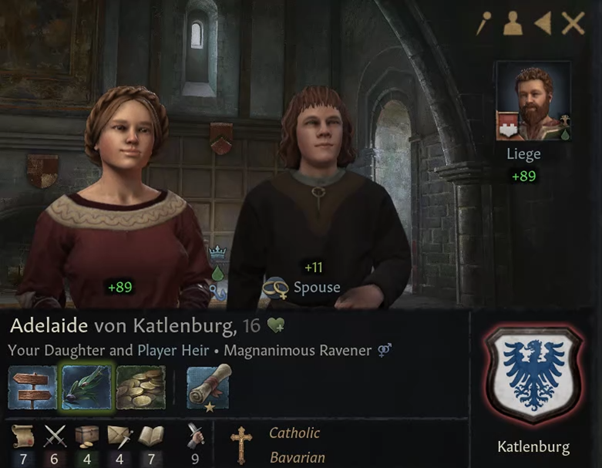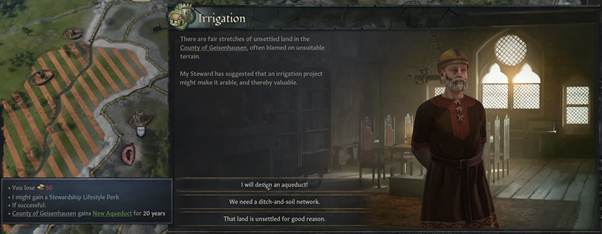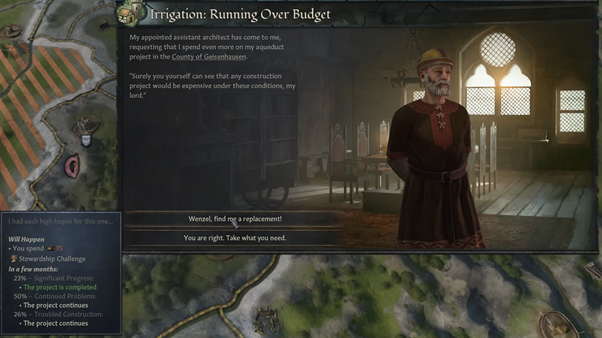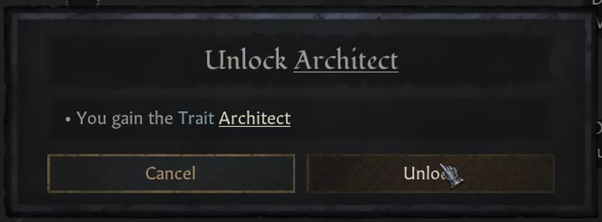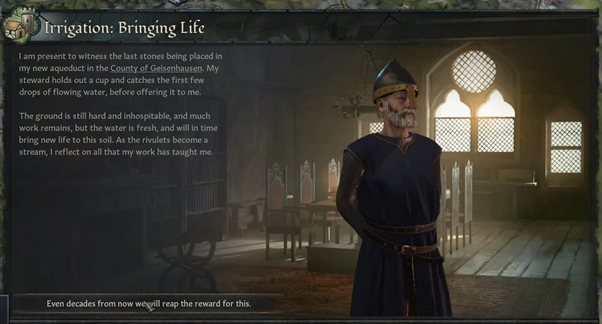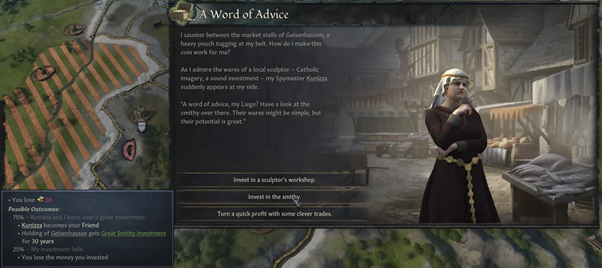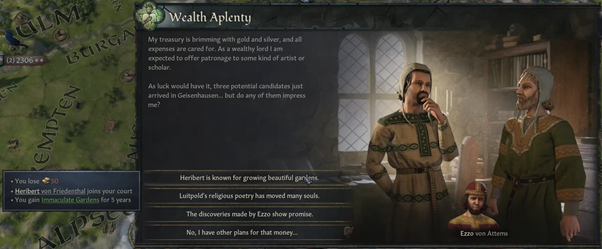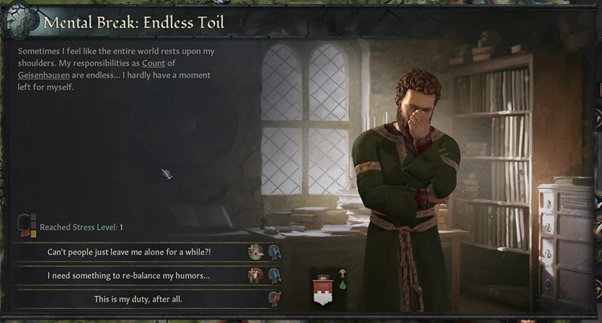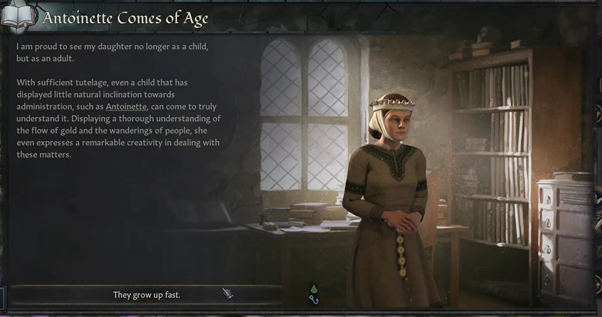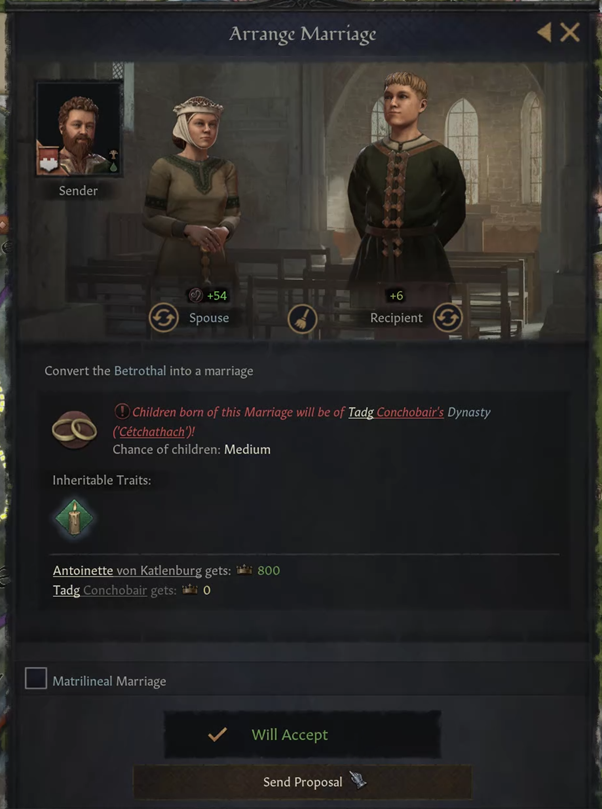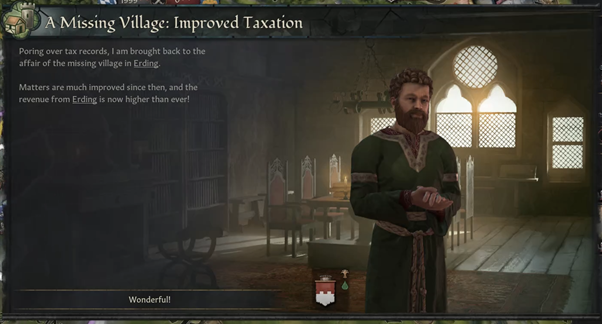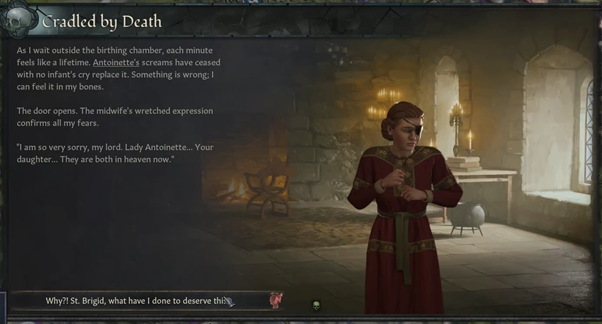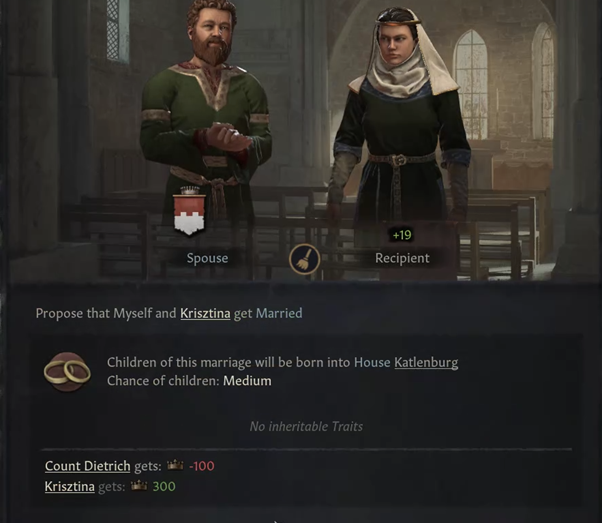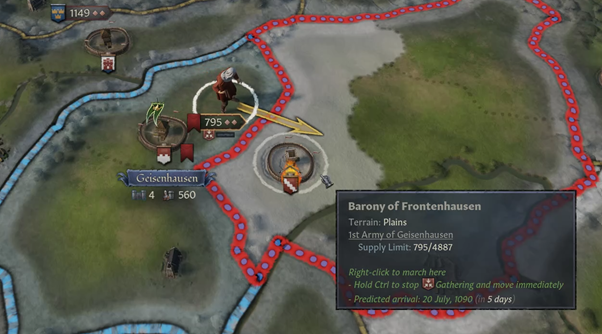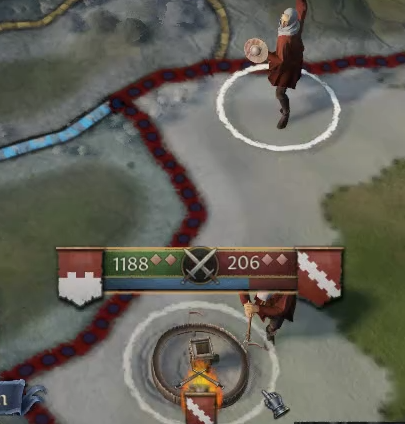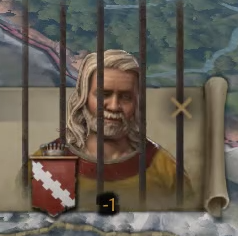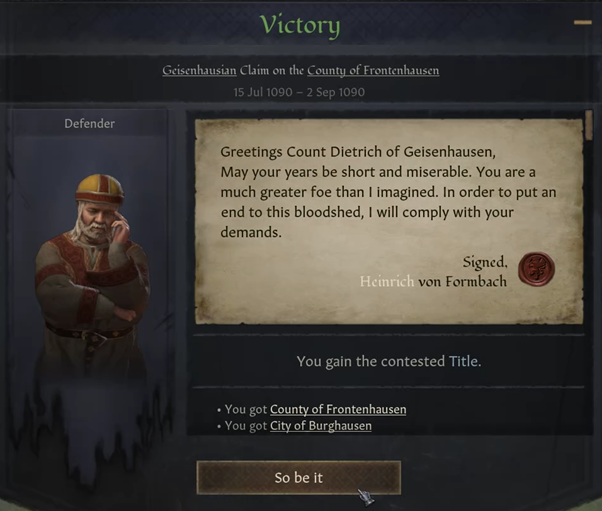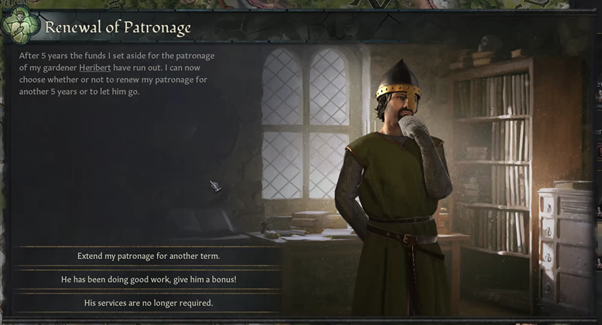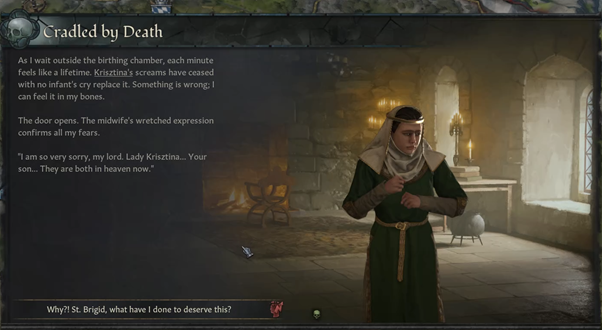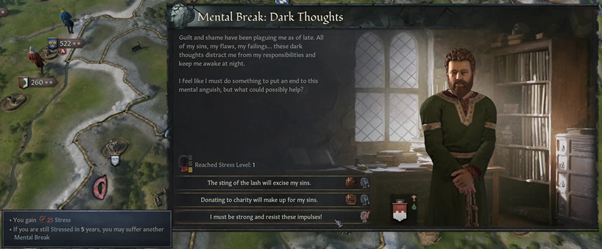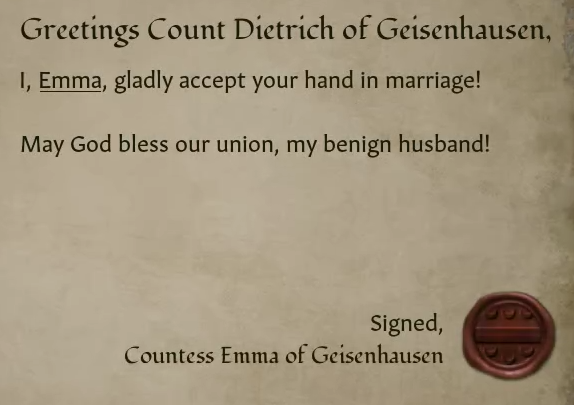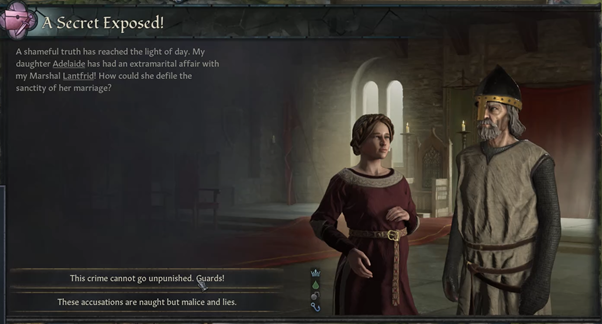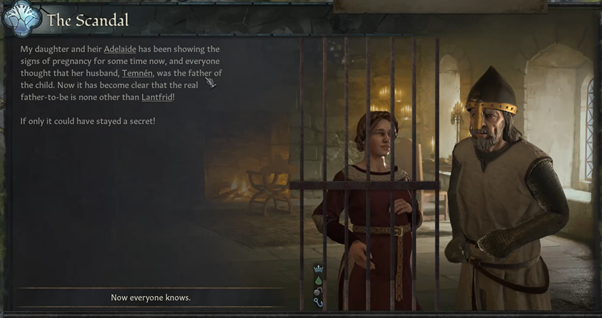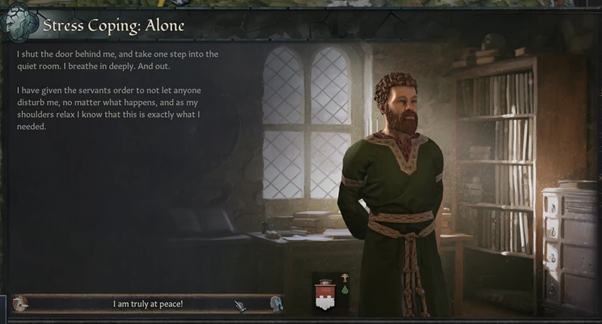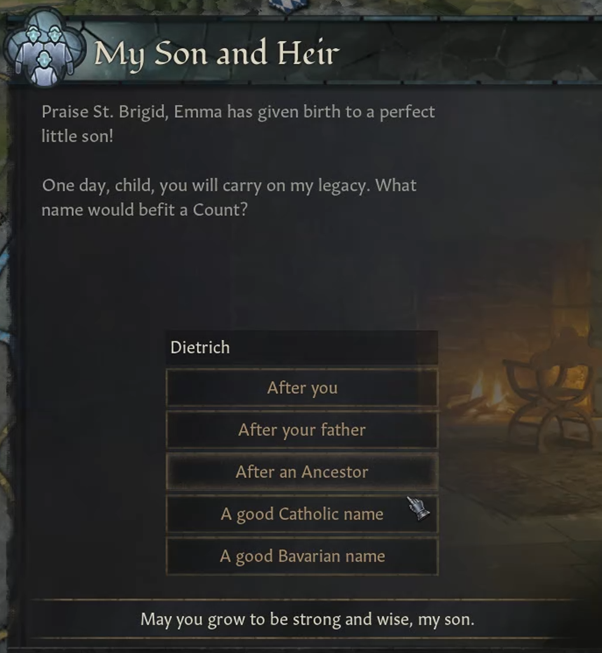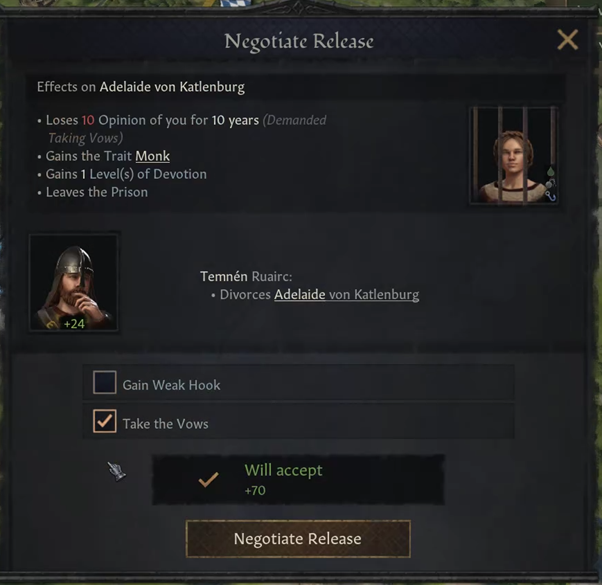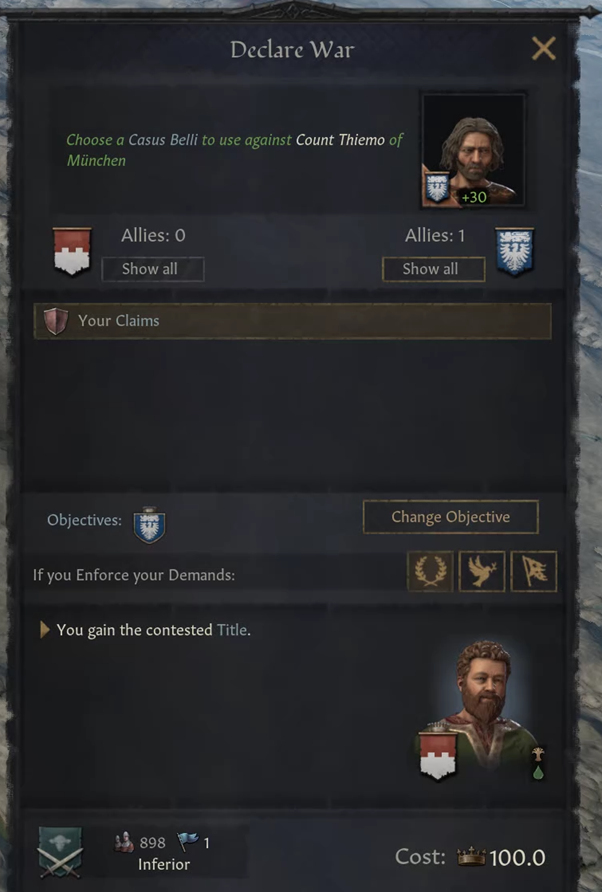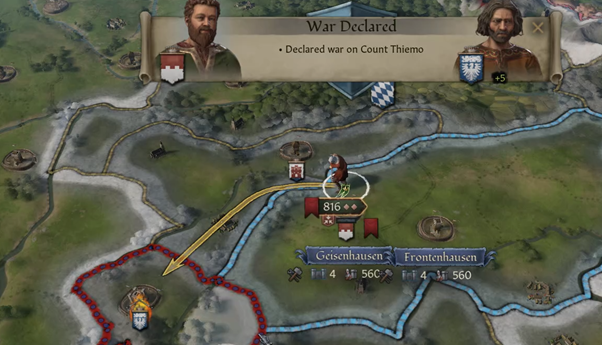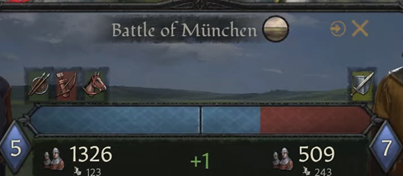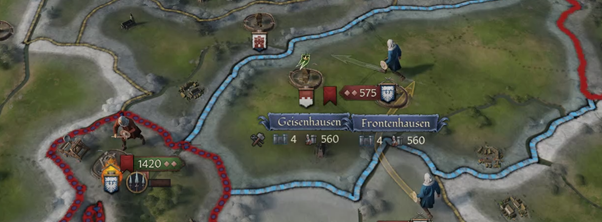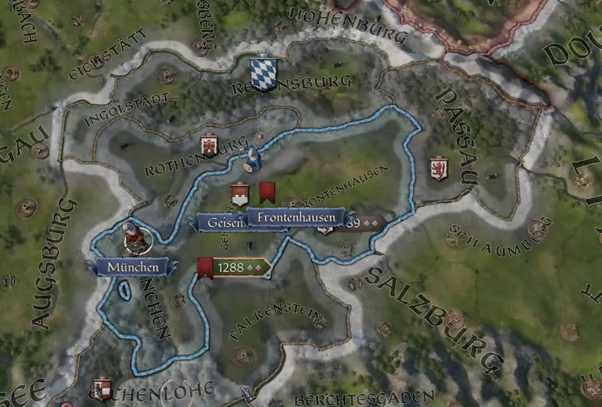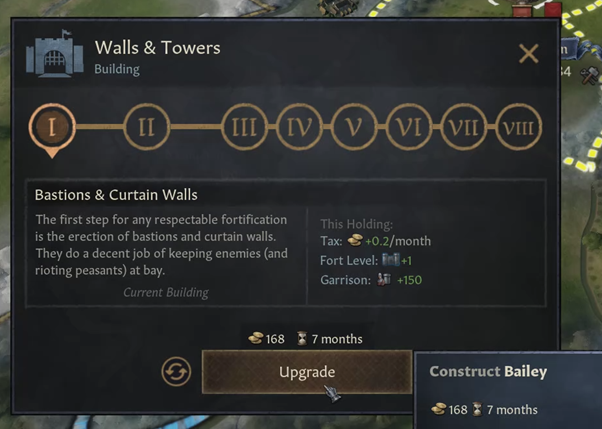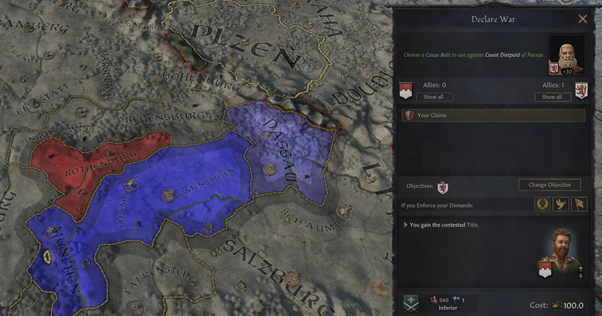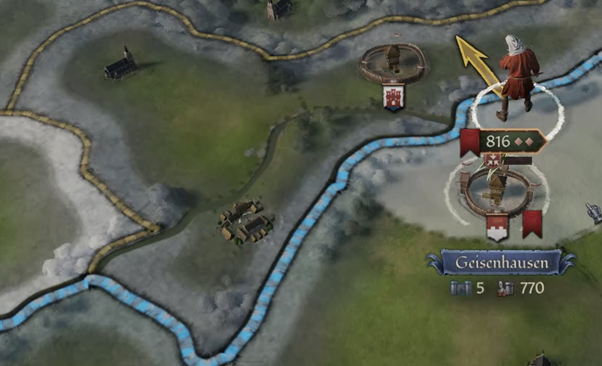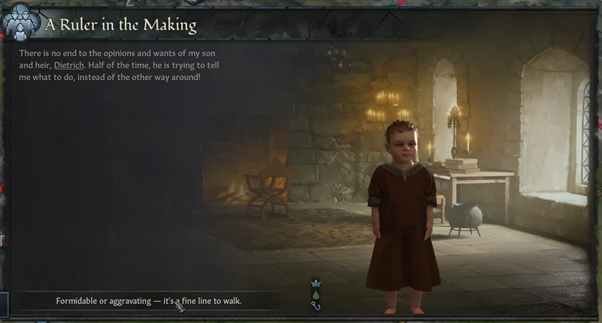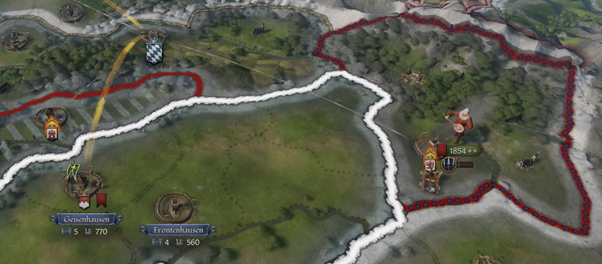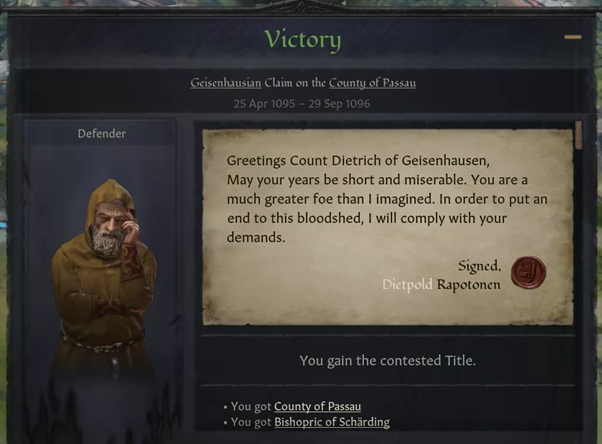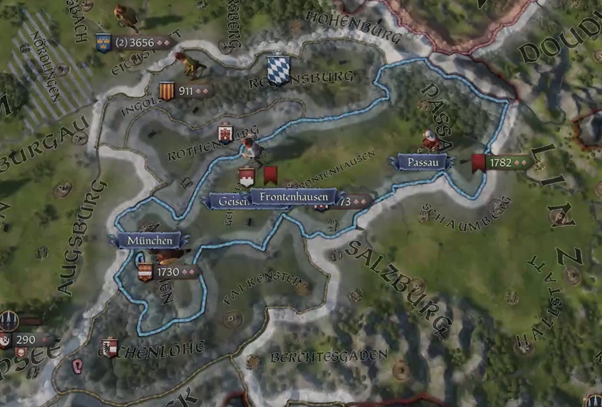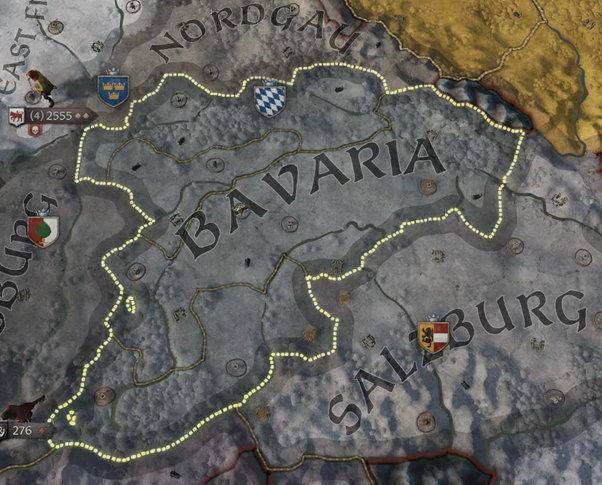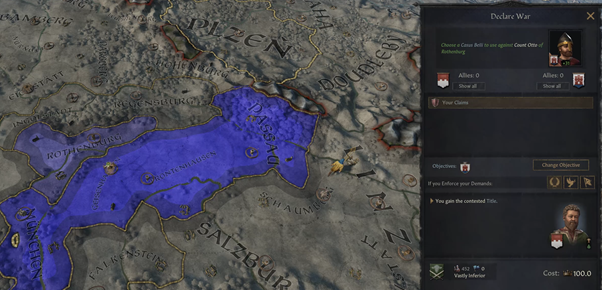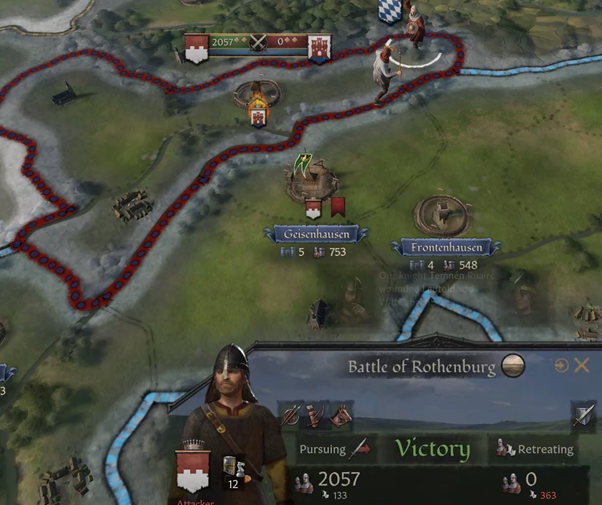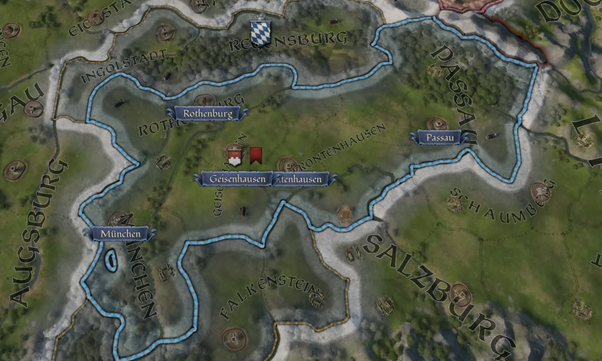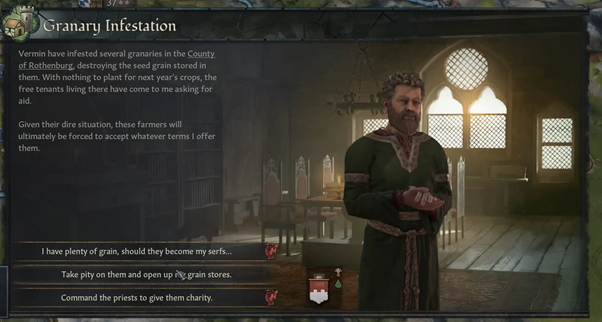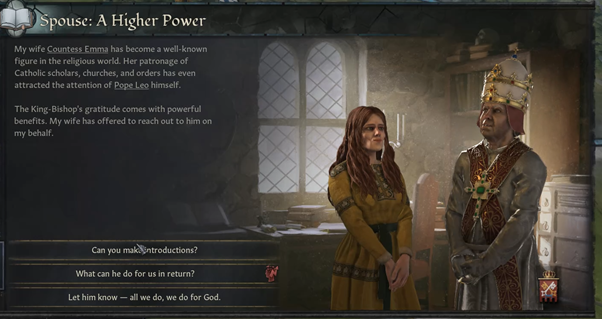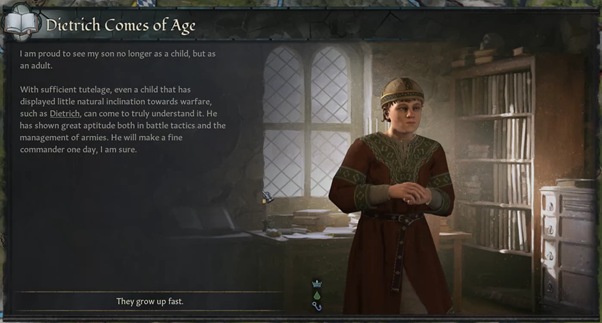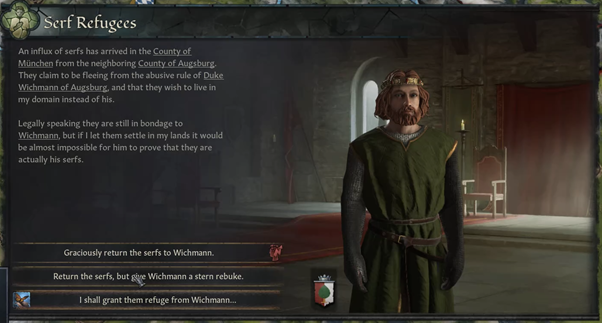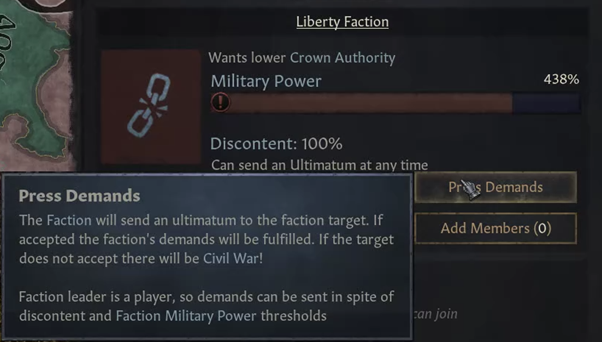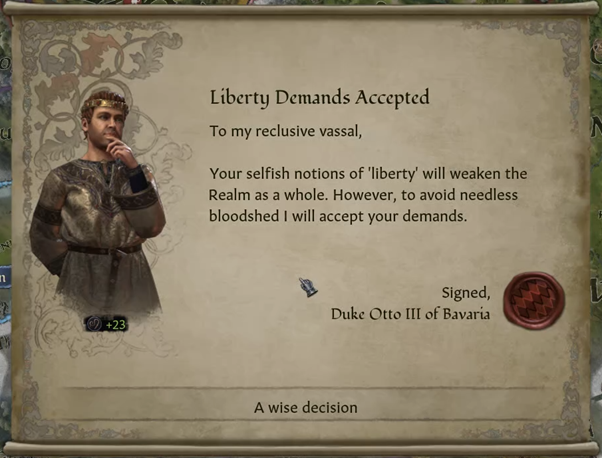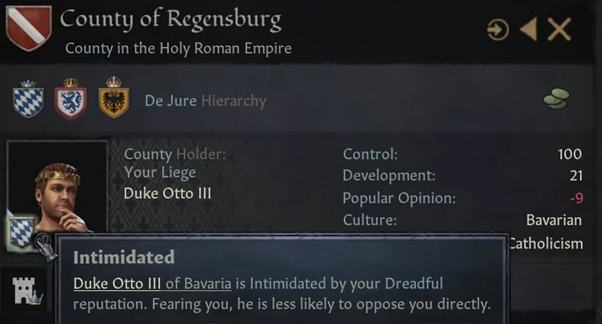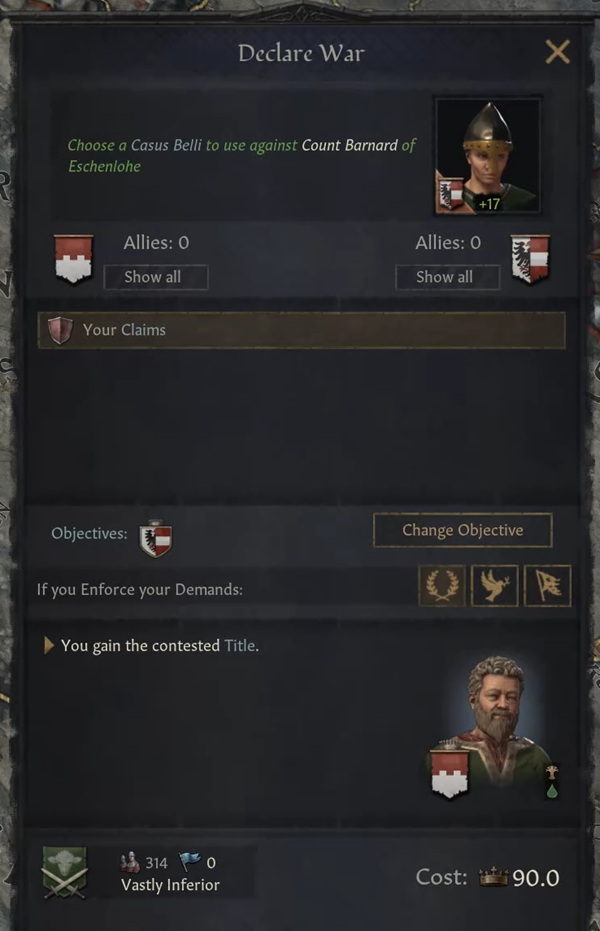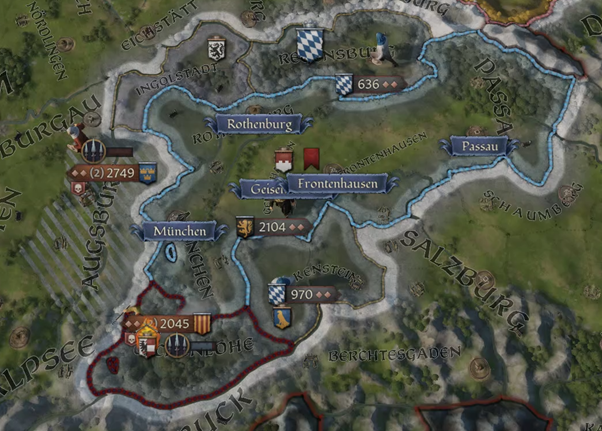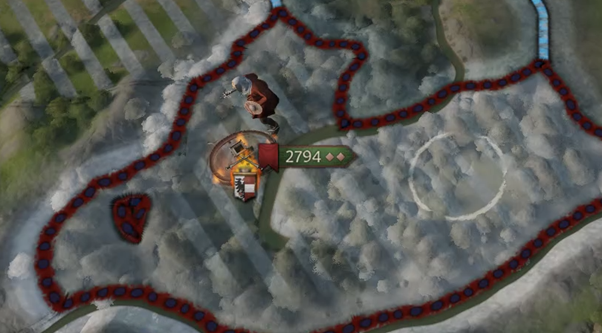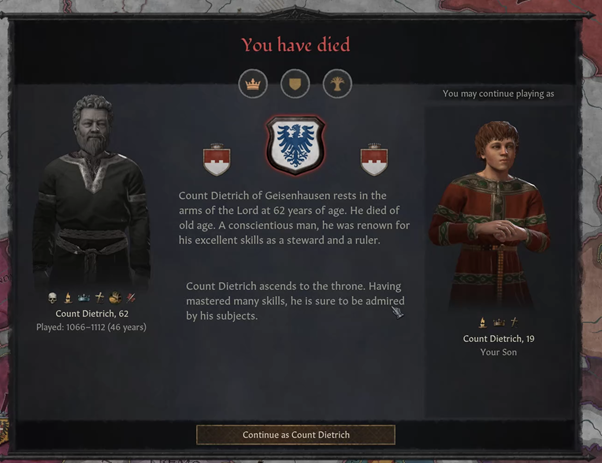I. Origin and Foundations (1066-1076)
The story of House von Katlenburg begins with the story of Dietrich, son of Dietrich, son of Udo, descended from the house of Udonen. Hailing from an area of Saxony, the family was transplanted south under the vassalage of Duke Otto II during the chaotic regency period for the Emperor, Henry IV.
His son, named for his father, inherited his father’s holdings in Geisenhausen upon his passing in 1066. His inheritance comprised the lands upon which a simple and dated holdfast were built and a small chapel at Erding, kept under the vassalage of Duke Otto II of Bavaria.
Having recently come of age, he takesthe hand of the young daughter of the French Baron of Montlhery, and using the dowry sets about attending to the keeping of his lands, blissfully ignorant of the strife and power struggles occurring elsewhere in the Empire.
From the east, Heinrich, the Count of Frontenhausen issues a dismissive, but welcoming missal to the new Count. Having been disturbed from the isolation of tending to his herds, Dietrich directs his Chancellor Arnulf to ride north to Regensburg to advance his status in the eyes of his liege, Duke Otto II.
Good news arrives shortly thereafter, as Countess Antoinette falls pregnant with a prospective heir. Dietrich awaits the birth of their first child.
Thrust into dealing with issues arising from the peasantry upon his lands. Upon being presented with an accused witch, he declares that the witch is to be burned, but privately expresses disgust at the conduct of mob justice in his lands and sets about working on ways in which to increase his oversight over his small demense.
On the 14th November 1068, Dietrich’s first daughter, Adelaide is born. The succession to the county is secure, albeit on unsteady ground.
Dietrich’s engagement with the local townspeople continues to grow, sourcing materials from his neighboring lords at cut prices and making use of unorthodox building processes to cut down on expenditure. In the meantime, a missive arrives from Rome, informing the young lord that he is to be granted a small stipend from the Church coffers to aid him in his building works.
The funds are immediately put towards building dedicated pastures for the peasantry to keep their animals, whilst new farms are built to improve their lot in life and to keep gold flowing into Dietrich’s coffers.
Dietrich’s second daughter is born shortly thereafter, Antoinette takes her mothers name, ensuring that the line of succession is stable.
Just days after his daughters birth, Dietrich’s levies are called to arms by Duke Otto II as troops under the command of Arnold von Andechs of Augsburg march northeast to challenge their overlord.
Dietrich commits a small force to support Otto, but remains at home in Geisenhausen to organise a small but dedicated group of committed builders and artisans to the task of improving his holdings.
The Duke’s power over his vassals is heavily contested. Appalled by increasing intervention over their lands, Arnold leads the charge into Regensburg to reduce the feudal obligations of the alliance. Dietrich is one of the few lords who gives little commitment either way, remaining committed to improving the lot of his land and people.
Pressed by his fellow Lords for a stronger commitment, Dietrich gives a short and inconclusive defense of his liege, it is enough to ward off greater interest from either side of the dispute.
With Regensburg besieged and unwilling to commit to further measures, Otto agrees to set aside new vassal obligations and grants more autonomy, resulting in a decisive victory for Arnold and his fellow lords.
At home, Dietrich finds his budding fatherhood and family life as challenging as the politics of the Duke’s court. Adelaide begins asking questions about the birds and the bees, her curiosity clearly getting the better of her.
Rumors from the west speak of dangerous heresies being spread amongst the nobility of Burgundy. Dietrich, a God fearing and committed Catholic, ignores such nonsense.
Wary of his precarious predicament amidst a group of strong lords of forced the Duke to heel, Dietrich invests in better hunting grounds to catch wild game, with the double purpose of allowing his levies to train their skills in preparation for any conflict that may bring itself to bear.
With a great deal of progress across Geisenhausen and the surrounding lands, Dietrich sets about reorganizing his Council and tax collectors to deal with the increasing amount of work that lay ahead.
As the work proceeds, Dietrich comes across a shocking peculiarity. The town of Erding is completely excluded from the tax records. Infuriated at having his work undermined, the Count rides to the village with his guard to investigate the cause.
The town is bustling and teeming from life from the Count’s investment. Satisfied but frustrated, he sets upon the local tax collector, demanding answers for the significant oversight.
Confronted with evidence of his wrongdoing, and surrounded by a group of loyal guardsmen, Ekbert is taken to the stockades and replaced by a new, loyal tax collector dispatched by the Council.
In just a few short years, the young Count has consolidated his rule and strengthened the prosperity of his lands under the noses of his peers. Yet more work needs to be done, and there is not a moment to lose.



